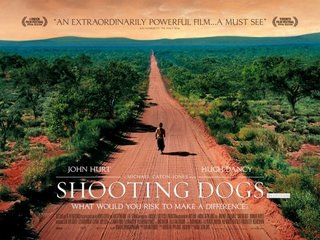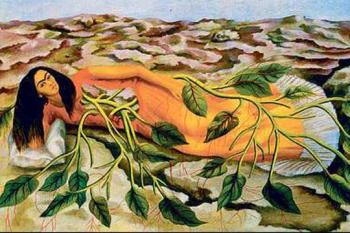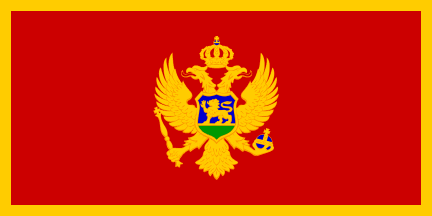 This is an extraordinary movie. It's a pity that I had to go to a suburban theater to watch it. Propaganda machine has, in a way, taken over the movie world, and if you can’t afford good marketing, you won’t reach people. People, in turn, won’t therefore notice your movie and won’t wanna watch it, making it unprofitable to theaters.
This is an extraordinary movie. It's a pity that I had to go to a suburban theater to watch it. Propaganda machine has, in a way, taken over the movie world, and if you can’t afford good marketing, you won’t reach people. People, in turn, won’t therefore notice your movie and won’t wanna watch it, making it unprofitable to theaters.And so, a masterpiece about the greatest massacre of the last 50 years has 3 spectators in Carcavelos, while mass audiences are enchanted by Da Vinci Code’s megalomania. ( “Hotel Rwanda”, treating the same thematic, had a much greater reach: maybe a bigger marketing budget?)
“Shooting Dogs”, a BBC production, widens our perception about how low can Mankind get. Watching millions of innocents murdered on the streets by devilish countrymen, you ask yourself how much is life worth. How much was a human life worth in Rwanda in 1994? Just 12 years ago. And so you ask yourself: “Am I more human than they were? No. And if not, how much is my own life worth?”
Are lifes more valuable if they are pleasure-seeking lives? That is, is the opportunity cost of losing a life bigger, if the lost life was a life of pleasure, lust, hobbies and fun?
Why, exactly, are we shocked when a drunk teenager dies in a car crash and, in the meantime, turn the TV off when thousands of Sudanese people die of under-nutrition?
As a character confessed in a moment of the movie: “When I was in Bosnia and saw so many women – white women – being murdered in front of me, I couldn’t stop crying. It could be my mother there. But here in Rwanda.. I haven’t cried once.. it’s because they’re black. You know? It’s terrible but it’s true.”
How long are we still going to deny Africans an Humanity status?








